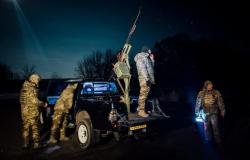The University of the Witwatersrand in Johannesburg, South Africa, hosted the annual conference on investigative journalism in Africa last October. At the heart of the discussions: the use of new technologies to dig into investigations, and in particular the role of artificial intelligence. A tool full of promise, but still little mastered and the extent of its possibilities can be discovered by trial and error.
This is Alice, online news presenter for Zimbabwean media CITE (The Center for Innovation and Technology). But Alice doesn’t really exist: she was created thanks to artificial intelligence. For Lulu Brenda Harris, one of the “real” reporters on the team, this frees up time to do investigative work: “ Human journalists produce the content and we write a script, which we give to Alice for presentation. Our editorial staff only has three reporters. So now we have time to do more in-depth reporting, because we know that the presentation of the information will be handled by Alice. »
Place of AI in editorial offices
Beyond this example, l’IA also offers new tools to treat a big volume of data, which can be interesting to investigate, according to Henri-Count Evans, professor of journalism at the University of Eswatini: “ We can now download a dataset, and write a prompt with instructions, to get certain answers, and this can help move us in the right direction. This is an interesting way to fill a skills gap, since until now, when journalists needed to analyze data, they did not necessarily have the knowledge to do so. »
However, AI can also be used to manipulate images and information. For Narcisse Mbunzama, Congolese digital expert, it is crucial for journalists to familiarize themselves with these tools: “ With the development of technology, if you are not up to date, you will be left out of the game. And it will be difficult, for example, for a journalist who does not master AI tools to be able to identify certain videos. You really need to have much more advanced skills, either in the use of AI software, or in fact-checking, to be able to identify this kind of videos. »
But these technologies are not necessarily designed and adapted for the African continent, as Eman El-Sherbiny, Egyptian journalist and investigator for the NGO Bellingcat, regrets: “ For example, we tried to work on Sudan, identifying fires and forests that were burned, but it was very complicated, because there was not enough satellite data from previous years. I think people working on artificial intelligence technologies should include African researchers much more, from the start. »
The use of AI to conduct journalistic investigations is, in any case, still in its infancy, and many uses remain to be explored.
Also readArtificial intelligence in Africa: AI is a game changer for communicators
Business

![Investigative journalism in Africa: the role of AI in question [1/3]](https://euro.dayfr.com/temp/resized/medium_2024-11-10-b206d6fc14.jpg)




